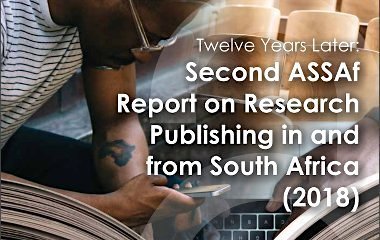We must end coercion in internationalisation in Africa
Damtew Teferra, in his contribution to University World News of 23 August, as well as at the Higher Education Forum for Africa, Asia and Latin America (HEFLA) symposium in Addis Ababa, Ethiopia, from

Damtew Teferra, in his contribution to University World News of 23 August, as well as at the Higher Education Forum for Africa, Asia and Latin America (HEFAALA) symposium in Addis Ababa, Ethiopia, from 25-27 July 2019, commented on my and colleagues’ updated version of Jane Knight’s generally accepted definition of internationalisation, in particular the addition of the word ‘intentional’.He stated that “internationalisation as regards the Global South, particularly Africa, is far from an intentional process”. I could not agree more and would add that this is also true for most higher education institutions in the Global North.
As Betty Leask and I state in our University World News contribution of 27 July, “the addition of the word ‘intentional’ highlights that the process must be carefully planned and strategically focused”, and I would stress the word ‘must’ – in other words the process does not happen by itself. The addition of the word ‘intentional’ gives, as we wrote, a more descriptive and normative direction to the internationalisation process.
Damtew Teferra states that “African higher education is the most internationalised not by participation but by omission”. That is similar to what I said in a contribution to University World News on 16 September 2012: “It is an undisputed fact that the policy and practice of internationalisation has been primarily driven and controlled from the Anglo-Saxon world and continental Europe, with the South being at the receiving end.”
I added that “Africa, a region that in terms of numbers of academics with a foreign degree, numbers of graduates with a study-abroad experience and the amount of knowledge and concepts from abroad it has imported, has probably the most internationalised higher education system in the world”.
But I also said that this would require a different, more regionally contextual approach to Africanisation and internationalisation. That is what is meant by the word ‘intentional’.
A coerced Western paradigm
Damtew Teferra emphasises correctly that in the Global South, particularly Africa, internationalisation is a coerced process. Indeed, international partnerships, rankings and language policies have unequal power dimensions in which the Global South is operating in a coerced way.
I agree that it is important to understand the relationship between internationalisation and decolonisation. Over the past decades, most scholarly and public attention with respect to internationalisation in higher education has focused on the Western world, with little attention being paid to the implications of colonisation.
In recent years I and others have written about whether the concept of internationalisation of higher education has itself become globalised. Our concern has been to emphasise that internationalisation should no longer be contextualised in terms of a Westernised, largely Anglo-Saxon and predominantly English-speaking paradigm and that there is a need for a different approach.
We see rapid changes in international higher education, which has only increased in range and complexity over the past decade. Notions of importing and exporting countries are being turned upside down as students choose study destinations in countries that were once seen as merely sending students to the ‘West’ to study.
Global mobility flows are increasingly complex, offering new opportunities for those able and willing to access them. Non-Western countries are emerging as key players and beginning to challenge the dominance of Western discourse on internationalisation.
Neither a copy nor a victim
But a recent study we did at the Boston College Center for International Higher Education for the World Bank on national policies for tertiary education in low- and mid-income countries found that institutions, countries and regions in the Global South appear to be simply mimicking the priorities of Anglo-Western forms of internationalisation.
And they still prefer South-North over South-South cooperation.
I was recently at Universidade Estadual Paulista ‘Júlio de Mesquita Filho’ (UNESP) in Sao Paulo in Brazil as an advisor to its CAPES-PrInt programme, the successor to the Science without Borders programme.
Among the 25 priority countries for international mobility and cooperation the programme includes China, India, Argentina and South Africa and allows for 30% of resources to be allocated to partnerships with institutions in other countries. Also, its internationalisation policy promotes cooperation within Latin America.
This is all very positive, but there is still, among faculty, a dominant preference for the Global North and little appeal in working with partners in the South.
My point is that the Global South should not accept coerced internationalisation and should not stay in its victim role. Instead it should develop distinctive forms of the concept of internationalisation that better reflect local needs and priorities. That is what we mean by ‘intentional’.
The contribution of Marguerite Dennis to University World News in a recent issue on Africa as the future battlefield for recruiting international students is relevant. Should African higher education accept a massive outflow of students to the Global North and increasingly to Asia? Or should it strengthen its own capacity and quality to keep them at home?
Africanisation and internationalisation
As I said in the HEFAALA symposium, reported in the same edition of University World News, for African universities dealing with the issues of decolonisation and Africanisation, internationalisation strategies should be strongly guided by African countries’ own context.
Africanisation should not be seen as the opposite of internationalisation. Rather they are two sides of the same coin. An exclusive focus on Africanisation will mean isolation while exclusive internationalisation will imply ongoing dependency and the copying of Western approaches to internationalisation which are not embedded in the local context.
Damtew Teferra even sees ‘internationalisation at home’ as coerced: “Even the idea of internationalisation at home – as innocuous as it sounds – is not that fully intentional, after all.” He states: “For instance, the re-curriculation of academic programmes, in reaction to and interest in the growing global realities of institutional cooperation and competition, is not an intentional process with unanimous voices.”
That is correct, but ‘internationalisation at home’ in the African context should intentionally be directed towards embedding internationalisation in African values, needs and priorities and developing an African approach to internationalisation.
There is no one model that fits all for internationalisation: local values, needs and priorities should direct the why, what and how of internationalisation. In this way, African institutions can intentionally break away from the coercion of the Western paradigm.
Hans de Wit is director of the Center for International Higher Education at Boston College, United States. Email: dewitj@bc.edu.






YORUMLAR